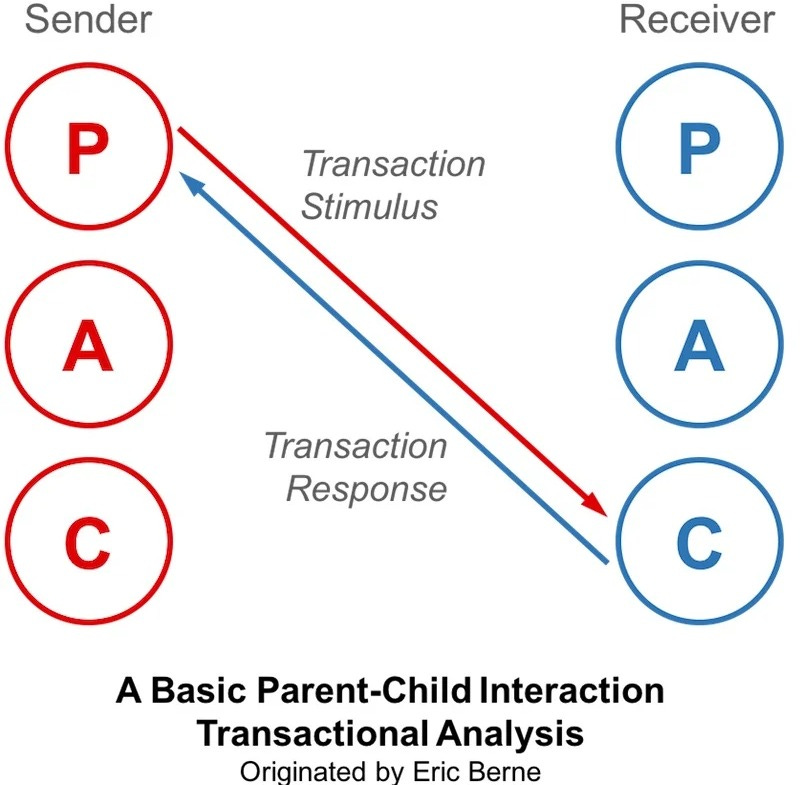I had a PhD and what many would consider a successful professional career, but I felt powerless when it came to making financial decisions. I was not in charge of the money I made. I felt impotent when it came to making even simple decisions such as getting a much needed repair for my vehicle or whether or not I could contribute money to my retirement account at work, to which my company offered a 4% match. I kept waiting for someone else to step up and take care of things…to take care of ME. I learned somewhere along the way that I wasn’t capable…that I shouldn’t…that I wasn’t supposed to… make these decisions or take initiative related to finances. I was at the mercy of someone else’s decision making…or lack of decision making. At some point in life, I learned that speaking up for myself…for my own needs and wants…was not safe…that I was supposed to let the others around me make decisions. I felt helpless and powerless without recognizing it.
The one place I felt a sense of control was in my work. So I worked…harder and harder…two, three, four jobs at a time…while caring for my four children. If I worked hard and played by the rules (of patriarchy), then surely it would work out. Someone would step up and make sure things were ok. No one showed up.
It wasn’t just patriarchy and my own upbringing that contributed to my learned helplessness around financial decisions. In my religious community, there were lessons, too. We heard stories of financial miracles that happened to pastors and missionaries. We were told to tithe and give to the church, in exchange for inevitable blessings. Again, if you followed the “rules”…worked hard, tithed, and prayed…God would show up and take care of you. That was the deal sold to us. I remember one Sunday when the church showed a video highlighting a wealthy family. The family told a story that connected their tithing (giving ten percent of your income to the church) to why they were so well off financially. The messaging was consistent and clear: work hard, follow the rules, and good things happen to you. God will show up and make sure you are ok.
The combination of these ideas in religious culture, patriarchy and the religious rules for women are a recipe to live in a state of learned helplessness.
When my circumstances changed through a divorce, the first thing I did was start contributing to my retirement fund. I still remember where I was sitting when I made that seemingly small decision. I marveled at the feeling. I made a financial decision on my own. I COULD do it. I did have some control over my finances and future.
Tori Dunlap, author of The Financial Feminist, says: “We've been conditioned and taught to play small. And then when we show up big, we either gaslight ourselves or somebody else gaslights us, because society is not comfortable with women playing big. We keep her controllable because money means [some form of] control. Money means power. The system knows this. When you have money, you have options. You have choices.”
Tori also acknowledges her own privilege and the systemic influences on the financial shame many women experience: “…this society and the system are broken. Your personal choices are a very small part of this; it's 20% personal choices, and 80% systemic oppression. So this is why you have to not just work to better your money at an individual level, but we also have to use money to change the system that exists for the people who can't; who don't have two nickels to rub together.”
My sense of agency and self-efficacy didn’t miraculously change my financial situation. I am still living and working within a system that blocks financial well-being for most Americans, cost of insurance and healthcare for a family just to name one. I continue to work on taking responsibility for my life…for not playing small…not waiting on someone else to step in and take care of me. I am not waiting for someone else to do the right thing for me. I can make choices, take responsibility and do the right thing myself.
Taking responsibility for my life includes healthy interdependence with people in my life whom I trust. I get to ask for help when I need it. I get to rely on others and expect that they will show up for me even while I make my own decisions. I have a lot to unlearn. That process and healing journey is ongoing. I am unlearning while still living within a system that continues to put up roadblocks and messages that could contribute to more learned helplessness.
Learned helplessness develops over time. A person adopts a posture of “I can’t. I am not able to think for or act on my own for myself” when they consistently try something and are met with a block. That block might be from ongoing traumatic experiences that make life feel impossible so why try. It might be from a context or a relationship that sends a message: “You can’t.”
Erik Erikson was a psychologist who developed the first and probably the most famous lifespan model of development with his eight stages of psychosocial development. Psychosocial meaning how the individual (psyche) develops within their context of relationships (social). Each stage is labeled with a developmental task, struggle or challenge of that particular age. I am going to name each stage and then say more about these tasks and struggles.
Stage 1 is from birth to about 18 months and is known as “Trust versus Mistrust”.
Stage 2 is from 18 months to 3 years old and is called “Autonomy versus Shame and Doubt”.
Stage 3 is from 3 to 5 years old and is called “Initiative versus Guilt”.
Stage 4 is from 5 to 12 years old and is called “Industry versus Inferiority”.
Stage 5 is from 12 to 18 years old and is called “Identity versus Role Confusion”.
Stage 6 is from 18 to 40 years old and is known as “Intimacy versus Isolation”.
Stage 7 is from 40 to 65 years old and is known as “Generativity versus Stagnation”.
Stage 8 is from 65 to death and is called “Integrity versus Despair”.
Each of these stages has a goal that comes out of these struggles. Whatever we work through or wherever we land in these struggles goes with us into the next stage. Each stage builds on the previous stages. For example, what we learn about relationships and the world around us in stage I goes with us and influences subsequent stages. Further, we don’t finish the work of a stage. Using the first stage again as an example, we don’t stop learning about trust versus mistrust. We continue to build on that work.
There is nuance to each of these stages and I am not going to walk through each one right now. For the purposes of this topic, I want to hone in on stages 2 through 5. In each of these stages, there is the opportunity for a parent to allow room for growth and discovery within a secure environment and there is the opportunity for a parent to take over or be absent, leading to insecurity.
For example, during the stage of “Autonomy versus Shame and Doubt”, what is a child learning to do? Here are just a few examples of what you might imagine when you think of a toddler and young preschooler.
Washing their hands.
Going to the bathroom on their own.
Climbing into the car to get seated.
Making decisions about what they want to do, what they want to play, etc.
Declaring their own opinions on what they want to eat, drink, etc.
Each of these moments is a delightful…and sometimes achingly slow…process. Parents have obligations, other children to care for, dinners to make, and places to go. It is completely normal for a parent to step in and help their child in these situations. However, if the parent is constantly taking over, getting exasperated by how slow or unskilled the toddler is and making decisions and actions for the child, the child absorbs a message: “You can’t do that. You aren’t doing that right. It is better if I just do it for you.”
On the other hand, if a parent never offers support, a child might become frustrated and give up, absorbing a similar message: “Things are too hard. I can’t do it. Why try?”
Thus, the struggle…the child develops a sense of autonomy…or shame and doubt in their abilities.
Offering a presence and environment that is both supportive and allows for trial and error requires a great deal from a parent. It requires self-regulation in the midst of frustration. It requires the ability to stay close to someone in discomfort without taking over or walking away, a skill many adults struggle with.
The next stage builds on this work with “initiative versus guilt”. When kids gain independence (autonomy) they will undoubtedly move on to taking initiative and try things on their own. That means they will mess up… a lot. They will make mistakes. They might try something that is deemed “wrong” or as “misbehaving”. The way a parent responds to these moments will determine if the child learns that it is safe to take initiative and sometimes make mistakes, or if they develop a sense of internal guilt over trying and failing, impeding independence and initiative.
In grade school (stage 4: “Industry versus Inferiority”), kids are busy! They are working so hard in school. It is a burst of learning. The kids bring home so many papers and worksheets to show parents about all that they are trying and learning. It is so important during this stage that kids develop a sense of mastery. The environment and relationships in their lives will tell them that they “can” or that they “can’t”. It is important that what they are learning is challenging, but not too overwhelming. They need enough challenge to develop a sense of pride in what they are learning and accomplishing. However, if the lessons and work are not age appropriate, then they will become frustrated (too much challenge) or apathetic (not enough challenge).
In adolescence (stage 5 “Identity versus Role Confusion”), kids are trying on so many “hats”. They get involved in extracurriculars and move in and out of groups as they learn more about themselves, their relationships, and the world. Adolescence is a time of exploring thoughts, ideas and identities. In the midst of that exploration, a young person is doing the very important work of figuring out who they are. This work is so important as it lays the foundation for the next stage when young adults make decisions on career and intimate partnerships. Again, this stage is an opportunity for parents to provide a safe space for that exploration. If a parent is absent or over bearing, it can interfere with this work. Disengaged or overly permissive parents are not asking good questions and expressing delight over their teen’s adventures, providing guardrails to the explorations while also offering support for the teen’s activities. Over controlling parents provide walls not guardrails and stifle dreaming and exploring so needed at this stage of development.
If a parent steps in and consistently takes over, the child learns a pervasive message: “I can’t. I am not able to think for myself or do things on my own.”
Additionally, if the home environment is chronically negative…negative comments and reactions to everything… that also creates an environment for learned helplessness.
That is one way that learned helplessness develops.
It meets the criteria: trying something and consistently met with a block.
Another way that learned helplessness emerges is when a person repeatedly experiences a stressful or traumatic situation that leads to a belief that they have no control or agency over their own life. These experiences might come as a result of historical events (COVID quarantine) or personal life experiences (chronic pain and chronic illness). Or, it might come as a result of a mentally, emotionally or physically abusive relationship.
Learned helplessness isn’t exactly a victim mentality in the way that we might think of that term. You might think about someone with a victim mentality as a person who is constantly showing up with a “woe is me” attitude.
However, someone with learned helplessness DOES exist in the world with an internalized belief that they ARE a victim of external factors. Someone with learned helplessness looks to other people to be in charge or to fix things for them. They lack a sense of agency (the feeling and belief that you have some control over your life and actions). There is very little initiative.
Why does this matter? What is my point?
Learned helplessness is associated with higher rates of depression.
Learned helpless is associated with a decreased belief in personal competence.
Some relationships and systems thrive on the learned helplessness of an individual or groups of people. One person or group of people feel more powerful and secure when they can push people around and take over in a way that says: “I’ll take care of this. You don’t know what you are doing” and the other person or group of people respond with words or behavior that basically says: “You’re right. I don’t know. Tell me what to do. You take care of it.” Then the other person or group feels puffed up: “That’s right. I do know what I’m doing and I’ll take care of it. I am powerful. Thank you for affirming my strength by your lack of initiative and self-agency.”
It is what we call in family therapy a feedback loop. There is a back and forth that confirms what each person or group of people believe or need to believe because of their own issues and insecurities.
The “powerful” ones in this feedback loop are actually quite insecure…dangerously so. Think of the Incel (involuntary celibate) movement. This is a group of men that is marked by insecurity and anger. Their response is to belittle and assume positions of power over women. They are looking for (or demanding) helplessness in women in order to bolster their incredibly fragile and hurt sense of selves.
Sometimes it is a case of what came first? The chicken or the egg? While learned helplessness does contribute to symptoms of depression, depression and anxiety also contribute to the onset of learned helplessness. Similarly, a person who already has a predisposition of learned helplessness can be more likely to enter into abusive relationships that feed off of and foster more learned helplessness.
One of the remarkable observations of those experiencing learned helplessness is that if you remove a person from a situation…if they miraculously leave a controlling or abusive relationship or they get relief from their chronic mental or physical health struggles… the short term can be a challenging adjustment, but the person can grow out of the learned helplessness and discover a brand new life in which they realize their own capabilities. “I can choose what I like! I get to do that! I never realized how beat down I was.”
An older but incredibly helpful model to look more closely at learned helplessness is called Transactional Analysis, first developed by psychiatrist Eric Berne in the 1950’s.
Here is the basic gist of it. Each person operates, communicates, and behaves out of three different parts of themselves: a parent self, an adult self, and a child self.
(Yes, this model has some similarities to Internal Family Systems for those of you therapists out there)
So sometimes when we talk to another person we talk in a parent, authoritative voice. In other situations when we talk to someone we talk in a collegial, adult voice. In yet some other circumstances we talk to others in a submissive or even playful child voice.
What complicates things…or, rather, what makes things more interesting…is that the person to whom you are speaking is ALSO operating, communicating, and behaving back towards you out of either a parent self, an adult self, and a child self.
And, then sometimes we can, based on past experiences, expect, anticipate, or assume that others will operate, communicate, and behave towards us out of a certain “self”. Perhaps, this previous “transaction” has not been very pleasant and you learned to respond out of a certain “self” as a defense mechanism.
Let’s use some common, real life examples to understand how these relational transactions take place.
Partners use all three of these “selves” when communicating and all three can be healthy. Let’s use a straight couple as the example here. When husband is sick (or vice versa) you can imagine husband taking on a “child self” as the poor sick little boy. The wife might operate, communicate, and behave towards him as the “parent self” as she helps him recover. As long as this relational transaction does not take place all the time there is nothing wrong with it. However, while doing something like their taxes together it is more appropriate if they talk “adult self” to “adult self”. If in a situation like this example if one spouse tends to take on the “parent self” and talk “down” to the “child self’ of the other it is probable not a healthy situation in the long run.
It is common to see a parent-child dynamic in couple relationships where there is trouble. One partner takes an under-functioning child role and one partner takes an over-functioning parent role.
In some relationships this dynamic is how co-dependency takes place. As one person in the relationship, the addict, constantly gets themselves into a situation when they are the child who needs caring and “picked up” the other person in the relationship constantly takes on the parent role that is sometimes the supportive, sweet mommy figure, but can turn into the nagging mom as the “parent self”, too. Sometimes the “parent” partner needs the “child” partner to continue in that role because they need to be needed in that way.
A person might struggle to maintain meaningful friendships, but not realize that they are constantly talking to others as an authoritative “parent self” and not everyone enjoys that type of transaction on a regular basis. Often people adopt this “parent self” because the only way they feel secure in relationships is if they feel “higher” than the other person…compensating for what is actually a feeling of being “lower”…deep insecurity.
The classic reads in Transactional Analysis are Eric Berne’s 1964 book Games People Play and Thomas Harris’ book I’m Ok, You’re Ok. Both are still very popular and can be found for purchase.
What can be helpful about Transactional Analysis is it helps you to think about your own transactions and be aware of them as you go throughout your day. How do you talk to others? Do you operate, communicate, or behave out of “parent self’ in response to certain individuals? To certain types of individuals? Or, do you take on the “child self’ when relating to some people?
When I was in the hospital recovering from the birth of my second child, I suddenly noticed that I was doing this weird thing. When the nurse would come to check on me…a nurse younger than me… I would get nervous and talk “up” to her. I was worried I was going to do something wrong and wanted her to like me. I didn’t like the way I sounded…childlike, helpless. It felt icky.
I was living in the Prague, Czech Republic, at the time. It was, by the way, my most positive birth experience in regards to the medical community and care. It is common practice in Prague to keep mom and baby in the hospital for at least 3 days after birth. I had time to think. This posture I had taken with the nurse was familiar to me. I reflected on past relationships with women in my life. I had taken this approach with other women in my life who were in an authority position to me. It occurred to me that I seemed to be trying to get some sort of approval and care that I felt was missing.
There was some wounded, younger part of me that was consistently acting in a way to elicit care and “parenting”. Taking on this submissive, “learned helpess” role put pressure on relationships that didn’t allow me to full show up as myself and didn’t allow me to enjoy the fullness that some relationships could offer. It also put me at risk of being manipulated and mistreated.
A person who has a wounded part that adopts a helpless, “one down” position in order to get care is at huge risk of ending up in relationships that take advantage of them.
I want to reiterate that learned helplessness is developed through macro and micro systems in our life. Both the people, communities and experiences close to you can foster its development AND so can larger cultural and societal systems.
Without condemnation or judgment, I encourage you just to be curious about your relational transactions and the “selves” you take on.
Where are you showing up with learned helplessness? What systems, relationships, and communities contribute to any learned helplessness in your life…maybe even “need” your learned helplessness to continue its status quo. This curiosity could lead to awareness that might spark some powerful life changing insight….and produce some life changing results in relationships throughout your life.
Postscript: In the readable version of this post on Substack you will find helpful links throughout the transcript of what is heard on the audio podcast version. The podcast and Substack is called Letters from a Therapist.
That’s what I have to say today. I am guessing you have something to say, too. Happy to hear it.
If you enjoyed listening today, please consider subscribing to my Substack and sharing it with someone you think might enjoy it, too. The subscription is free and it would mean so much to me. Thank you!














Share this post